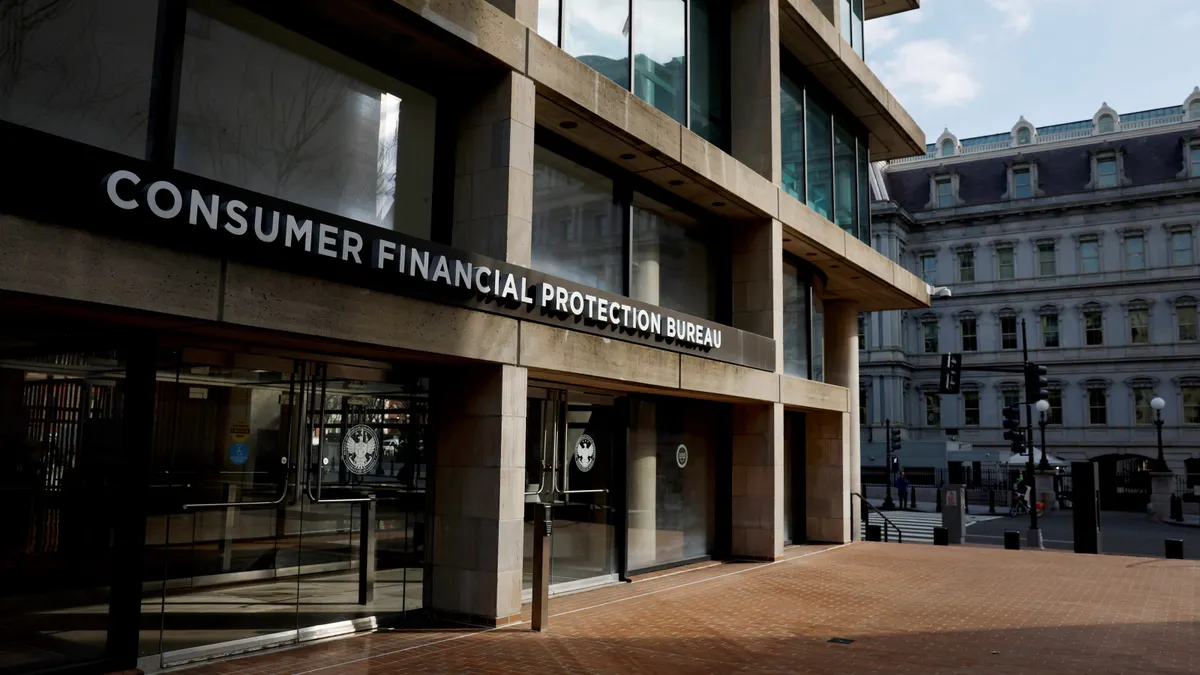Last spring, three of the four largest bank failures in U.S. history spurred the re-emergence of questions about bank runs and liquidity.
Federal Deposit Insurance Corp. Vice Chair Travis Hill shared his thoughts on how regulators and banks can better manage liquidity stresses and more, including the regulation of brokered deposits and how regulators must roll out a Basel III endgame re-proposal. He spoke Wednesday at the American Enterprise Institute.
Here are five takeaways from his speech.
1. Regulators need to figure out how to destigmatize the discount window.
Banks have to be able — and willing — to use the lending facilities available to them, Hill said. The less banks use the discount window, the more reluctant supervisors are to let them treat it as part of their contingency plan.
“The Federal Reserve has been working to address stigma for many years, an issue that has existed for nearly its entire history. I tend to think that, at least for large banks, stigma will remain an issue so long as banks do not borrow from the discount window in meaningful volumes and markets can figure out when banks under stress are forced to borrow,” Hill said.
“A fundamental challenge is encouraging banks to use the discount window, so that it is less damaging to use when really needed, but not to make it so attractive that the central bank becomes an everyday source of liquidity across the industry,” he said.
2. Better access to real-time data could help manage liquidity stresses.
The FDIC in 2020 initiated a mechanism to develop technologies that would eventually have given the regulator access to real-time deposit flow data, but FDIC Chair Martin Gruenberg discontinued it. The Federal Reserve, as well, doesn’t have real-time deposit movement data available.
“It would be very helpful if the Federal Reserve can find a way to make this data available in real time for key decision-makers, along with capabilities to rapidly analyze it,” Hill said. “Among other benefits, better visibility into real-time deposit movements across the system could significantly improve our ability to monitor for runs and contagion, and reduce the risk of unnecessarily invoking the system risk exception (and vice versa).”
3. Regulation on brokered deposits could use an update.
Brokered deposits are sometimes seen as “hot money” because they move from bank to bank in search of higher interest rate yields and are therefore less “sticky” than typical retail deposits. The framework for such deposits has been in place since 1989 and is prime for updating, in part because new brokered deposit arrangements have popped up over the years, Hill said.
“Today, different types of deposits currently classified as ‘brokered’ present, in certain respects, diametrically opposite characteristics. Some types of brokered deposits raise safety and soundness concerns out of fears that they are volatile, unstable, or otherwise likely to be withdrawn if the bank experiences turmoil or negative attention,” Hill said.
“On the other hand,” he added, “traditional brokered deposits present the opposite concern — the deposits have no franchise value because the depositors have no relationship with the bank, earn high rates, are fully insured, generally cannot withdraw before maturity, and thus are generally indifferent to the condition of the bank, but are incredibly stable.”
4. A re-proposal of last year’s Basel III endgame is necessary — and a partial re-proposal might not cut it.
Fed Chair Jerome Powell said earlier this month that it’s essential to get public comments on changes to the proposal that would overhaul how larger banks evaluate risk and how much capital they’re required to hold.
Hill spoke in favor of a full re-proposal.
“While some changes may be relatively straightforward and, in isolation, may benefit less from additional feedback, everything in the framework is related,” Hill said. “For example, commenters might react differently to certain changes to the operational risk framework if they know the agencies plan to adopt other changes to the credit risk framework (and vice versa), given that both frameworks impact the capital charge associated with the same exposures.”
5. The Fed, FDIC and Office of the Comptroller of the Currency must be in lockstep on a Basel III endgame re-proposal.
Powell said this month that the Fed is working to get the FDIC and OCC on board with re-proposal, and Hill signaled his agreement.
“For just one agency to re-propose — but with an expectation that a future final rule will be issued jointly by the three agencies — would be unprecedented, sow confusion, and lead to a number of practical and legal questions,” Hill said





















